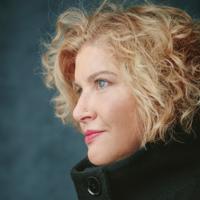Neuroscience-based Vocal Pedagogy
Thursday 22nd April 2021, 5:00 PM - 7:00 PM (London Time)
Neuroscience-based vocal pedagogy
Heidi Moss Erickson, B.A.Bio, B.Mus.Voice, M.Sci.
Research on the neurobiological underpinnings of vocalization is growing at a rapid pace. Scientists from varied disciplines contribute to this field, elucidating the process from diverse angles such as evolutionary biology, molecular biology, genetics, neuroscience, and social science. It is essential that singers, pedagogues, and voice scientists capitalize on this wealth of data outside of our own field to greater understand our instruments.
An integrative viewpoint of how and why we sing can refine the art of vocal pedagogy, demystifying long-held myths, and yield greater vocal efficiency: making singers better faster.
The goal of this lecture is to bridge the divide between traditional voice science and pedagogy with the most current research from other disciplines.
Specifically, we will explore:
- Vocal Learning: audiation and mimicry
- How to learn coloratura and riffs via patterns
- The importance of getting off the page and strategies to make written music more ‘singer-brain’ friendly.
- Using gesture to improve vocalization (and why it works!)
- Pitching strategies
- Reframing breath: a valve based system
- Character and emotion: playing with opposites
- Distraction as a tool
Vocal pedagogy should be a dynamic process, and the hope is that this exploration will encourage singers and teachers to think outside the box. Given the rapid pace of neuroscience research, dogmas can actually change in a short amount of time resulting in paradigm shifts that can be small or seismic. To that end, it is important to keep up to date on current trends via primary papers and taking note of the diverse minds in the field. We will finish the lecture with a bibliography of the wonderful scientists working on the neuroscience of vocalization.
Heidi Moss Erickson
Heidi Moss, is a Bay Area performer, educator, and scientist. Noted for her “rich and radiant soprano” (Edward Oriz, Sacramento Bee) has performed on national and international stages...
Sorry, this is an archived short course...
We have plenty of upcoming short courses coming soon. See details of some of them below or look at the full list of short courses.

Thursday 19th February 2026
1:00 PM - 2:30 PM
Thursday 26th February 2026
1:00 PM - 2:30 PM
(London Time)
Performing Pain: Vocal Health in Emotional Roles!

Louisa Morgan
How connected are acted emotions to our real-life emotions? Are they expressed differently? Do they feel different in the body? This 2-part course with Louisa Morgan looks at the potential impact of acted emotion on vocal health, why we should consider it as voice practitioners, and how to care for our performers needing to work with it.


Tuesday 24th February 2026
5:00 PM - 7:00 PM
(London Time)
Incorporating CBT principles within vocal health and voice care

Dr Luke Aldridge-Waddon
Join Dr Luke Waddon as he introduces the principles and techniques within cognitive-behavioural therapy (CBT) in relation to the voice and voice care. He will discuss psychological factors relevant to the development and maintenance of voice disorders and how these might be approached from a cognitive-behavioural perspective. He will describe theoretical concepts and therapeutic components often used within CBT and consider how these might be applied when working with voice users.


Tuesday 3rd March 2026
5:00 PM - 7:00 PM
(London Time)
Sex differences in VOICE!

Dr Richard Lissemore
This two-hour workshop, led by performer, articulatory phoneticist, and voice physiologist, Dr. Richard Lissemore, will examine in detail the role that biological sex plays in the perception and pedagogy of singing voices. We'll consider how parameters such as anatomy, physiology, articulation, resonance, and radiated acoustics influence the perceptions and pedagogical decision-making of singing teachers.
